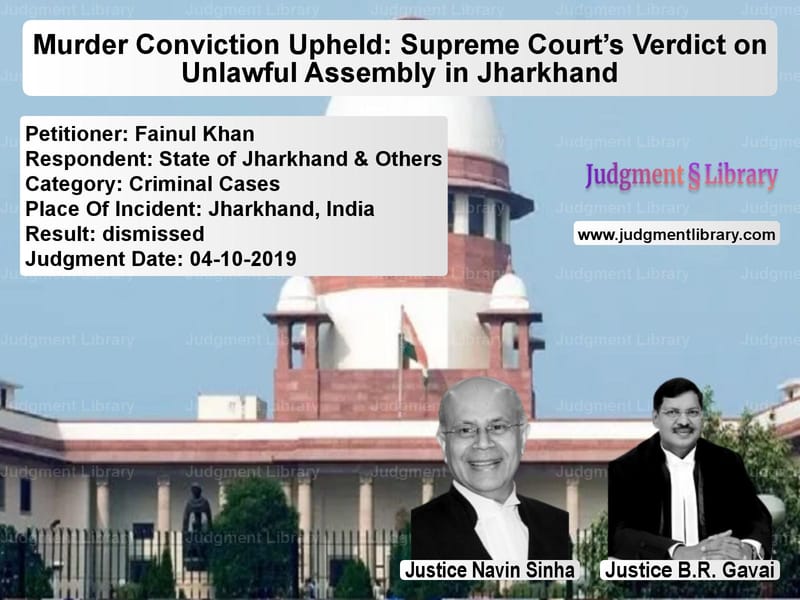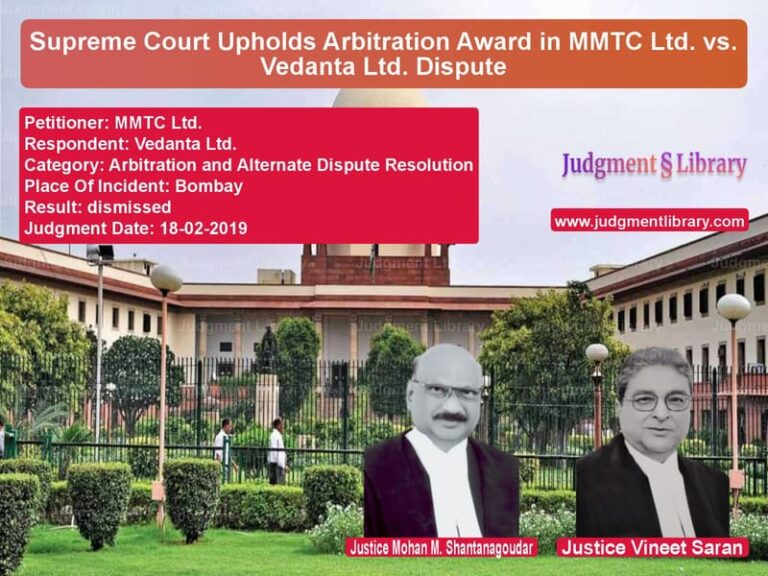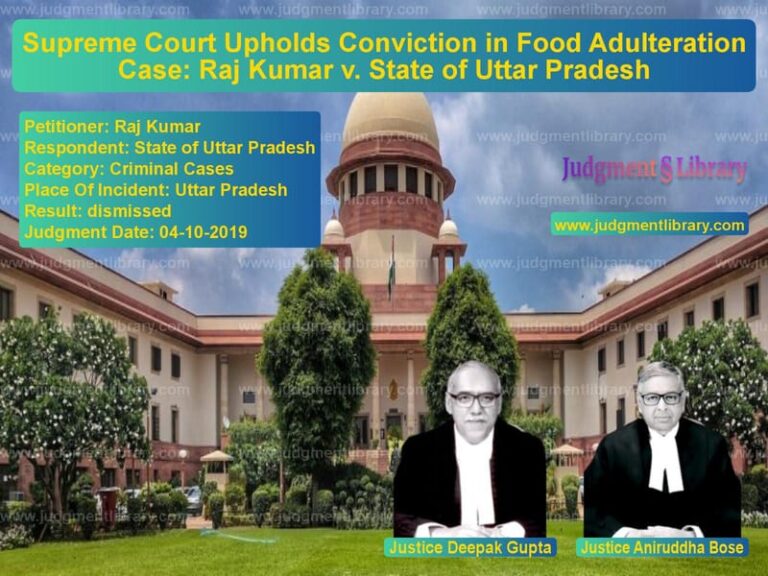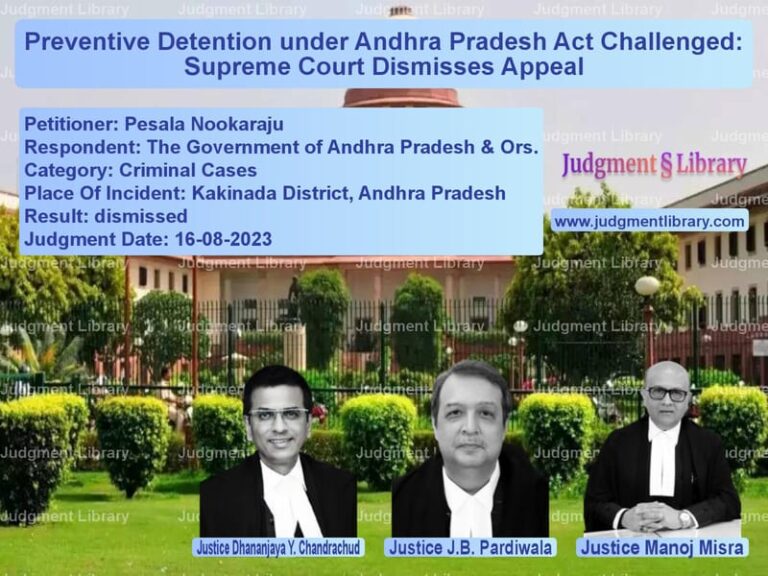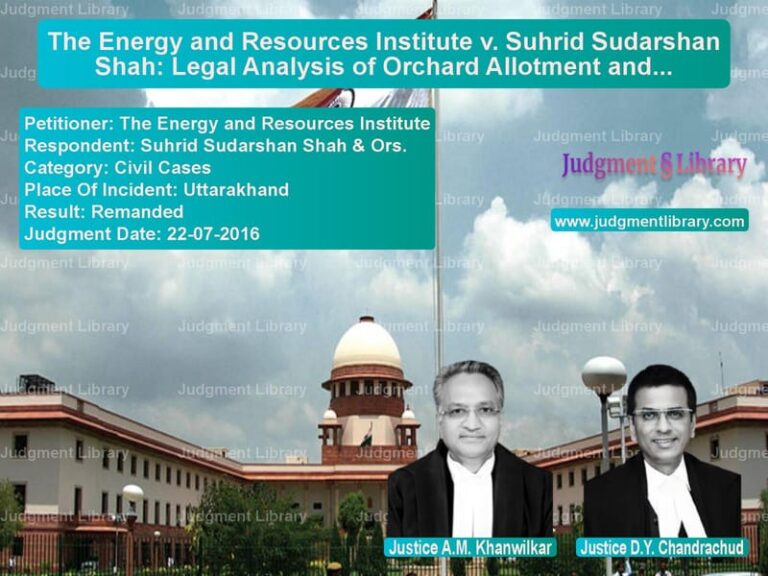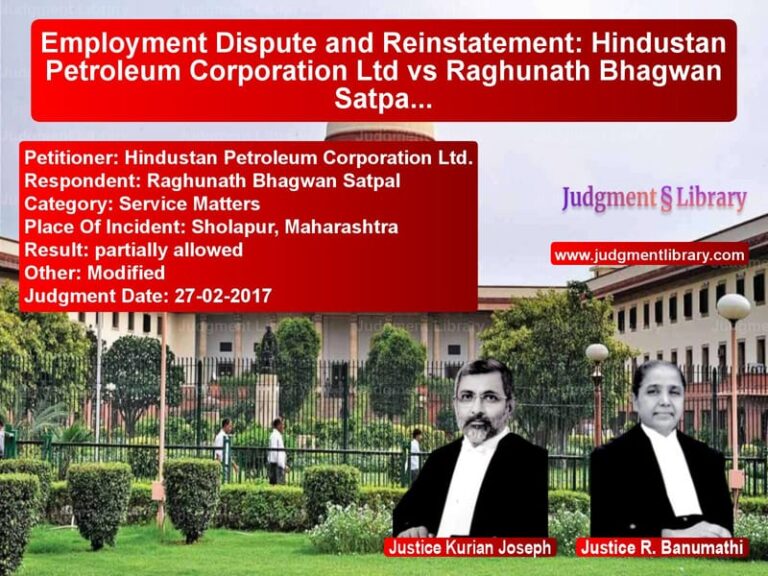Murder Conviction Upheld: Supreme Court’s Verdict on Unlawful Assembly in Jharkhand
The case of Fainul Khan vs. State of Jharkhand & Others revolved around a violent assault resulting in murder. The Supreme Court was called upon to decide whether the conviction of the accused under Section 302/149 of the Indian Penal Code (IPC) was justified, given the inconsistencies in witness testimonies and alleged procedural lapses.
Background of the Case
The incident occurred on November 1, 1983, at approximately 6:30 PM in the state of Jharkhand. The prosecution alleged that a group of accused persons, including the appellants, armed with lathis and spears, attacked and killed the victim. Two prosecution witnesses, P.W.7 and P.W.8, claimed to be injured eyewitnesses, while another, P.W.6, also asserted that he witnessed the crime.
The police report was lodged by P.W.8 at the hospital where the victim was taken. The trial court convicted the appellants under Sections 302/149, 323/149, and 147 IPC, sentencing them to life imprisonment along with other terms of imprisonment.
Petitioner’s Arguments
The appellants, through their legal counsel, argued:
- The charge under Section 147 IPC (rioting) was defective, as it was framed against only four persons instead of all six accused.
- They were denied a fair trial due to an improper Section 313 Cr.P.C. examination, where the trial court failed to put all relevant incriminating circumstances to them.
- The prosecution evidence was inconsistent—P.W.7 claimed to have suffered lathi injuries on his thigh and leg, but P.W.6 and P.W.8 did not mention any such injuries.
- P.W.6 was not an actual eyewitness, as he arrived only after the accused had left the scene.
- The lack of injury reports for P.W.7 and P.W.8 raised doubts about their credibility as injured witnesses.
- The prosecution’s case was motivated by prior enmity between the parties, making false implication possible.
- The nature of the injuries did not establish a common object to commit murder. The appellants should, at most, have been convicted of a lesser offense.
Respondents’ Arguments
The State of Jharkhand, through its counsel, countered these claims:
- The conviction was based on direct eyewitness testimony, and minor inconsistencies did not affect the overall credibility of the witnesses.
- The omission of proper questioning under Section 313 Cr.P.C. did not cause prejudice, as the appellants were aware of the accusations and had a chance to defend themselves.
- P.W.7 and P.W.8 were present at the scene, and their injuries were recorded at the police station.
- There was ample proof that the accused shared a common object to commit murder, satisfying the requirements of Section 149 IPC.
Supreme Court’s Observations
The Supreme Court carefully examined the evidence and arguments presented, making the following key observations:
“The accused were well aware that six of them were charged together for a common assault under Sections 302/149 and 323/149. They knew that some among them were armed with deadly weapons and had used them to assault the deceased.”
The Court also addressed the concerns about procedural irregularities:
- The alleged defect in framing charges was a mere omission that did not cause any prejudice to the accused.
- The lack of injury reports for P.W.7 and P.W.8 was due to a defect in the investigation but did not undermine their credibility.
- The presence of bruises on the deceased’s arm suggested that the appellants were part of the unlawful assembly.
Final Verdict
The Supreme Court upheld the conviction and ruled:
- The appeals were dismissed, and the life imprisonment sentences were affirmed.
- The appellants were directed to surrender immediately to serve the remainder of their sentences.
- The presence of the accused at the crime scene, along with witness testimonies, established their common object to commit murder.
- The procedural lapses in the framing of charges and Section 313 Cr.P.C. examination did not materially affect the trial.
Legal and Policy Implications
The judgment clarifies important principles in criminal law:
- Minor defects in charge framing will not lead to acquittal unless substantial prejudice is demonstrated.
- Defective investigation (such as missing injury reports) does not automatically discredit prosecution witnesses.
- Common object under Section 149 IPC can be inferred if a group acts together with a shared purpose, even if all members do not physically assault the victim.
- Omissions in Section 313 Cr.P.C. questioning do not vitiate a trial unless prejudice is clearly proven.
Conclusion
The Supreme Court’s ruling in this case reinforces the importance of witness testimonies in criminal trials and upholds the principle that minor procedural lapses do not automatically invalidate convictions. This judgment serves as a precedent in cases involving unlawful assembly and common object liability under Section 149 IPC, ensuring that justice is not defeated by technicalities.
Petitioner Name: Fainul Khan.Respondent Name: State of Jharkhand & Others.Judgment By: Justice Navin Sinha, Justice B.R. Gavai.Place Of Incident: Jharkhand, India.Judgment Date: 04-10-2019.
Don’t miss out on the full details! Download the complete judgment in PDF format below and gain valuable insights instantly!
Download Judgment: Fainul Khan vs State of Jharkhand & Supreme Court of India Judgment Dated 04-10-2019.pdf
Direct Downlaod Judgment: Direct downlaod this Judgment
See all petitions in Murder Cases
See all petitions in Bail and Anticipatory Bail
See all petitions in Fraud and Forgery
See all petitions in Judgment by Navin Sinha
See all petitions in Judgment by B R Gavai
See all petitions in dismissed
See all petitions in supreme court of India judgments October 2019
See all petitions in 2019 judgments
See all posts in Criminal Cases Category
See all allowed petitions in Criminal Cases Category
See all Dismissed petitions in Criminal Cases Category
See all partially allowed petitions in Criminal Cases Category

